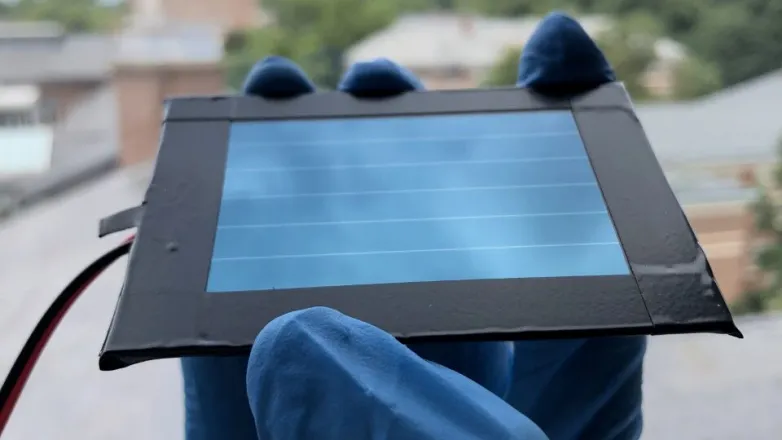'Spontaneous de-doping' for 17.8%- reliable perovskite mini-module
- U.S. scientists have located a brand-new 'de-doping' procedure in perovskite solar cells that might cut manufacturing expenses and create far better tools. They have utilized this to make a mini-module with 17.8% performance.

Perovskite solar cell innovation has actually come a long way in a relatively short time, however there are still plenty of concerns that need to be settled to support large production.
Scientists at the University of North Carolina (UNC) claim that a person of these problems is the annealing (heating and also sluggish air conditioning) procedure that perovskites go through. Many fabrication procedures take too long, presenting a significant bottleneck in mass production. The UNC researchers estimate that for lengthy annealing times to stay up to date with the rate at which perovskites films are generated, producers would certainly need a 500-meter-long stove.
The UNC scientists claimed that reducing this annealing process to 3 minutes at 100 C might really cause much better performance. The group puts this down to a previously unknown de-doping process within the perovskite, which ultimately brings about lower recombination losses as well as much better efficiency.
After manufacture
The group produced perovskite (methylammonium lead iodide) tools using a blade-coating procedure, and contrasted identical tools that had been hardened for three and also 20 minutes, specifically. Both gadgets originally taped an open-circuit voltage of 1.14 V, yet after 20 days aging at night, the three-minute device had increased to 1.20 V, while the 20 min device had somewhat reduced to 1.13 V.
Examining both tools, the group discovered a 'de-doping' procedure was at operate in the much shorter stiff gadget, yet not in the lengthy one. "The short annealing treatment maintains the stoichiometric structure of perovskite and permits a notable spontaneous de-doping procedure," state the researchers." [This] is missing in perovskite movies treated with traditional lengthy annealing."
They explain the de-doping procedure in "Reduced Self-Doping of Perovskite Induced by Short Annealing for Efficient Solar Modules," which was just recently published in Joule. Further trial and error suggests similar effects exist in cesium- and also formamidinium-based perovskites, as well.
The procedure was revealed to continue in completed gadgets in addition to perovskite films, so the researchers suggest that in the industrial area, suppliers can make use of storage space as well as delivery periods post-production for the modules to reach optimal performance, while enhancing throughput and removing a costly heating stage in production.
Also read

